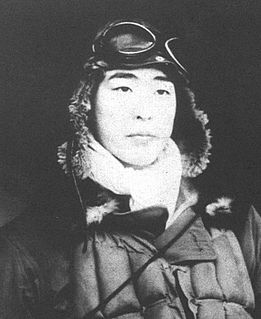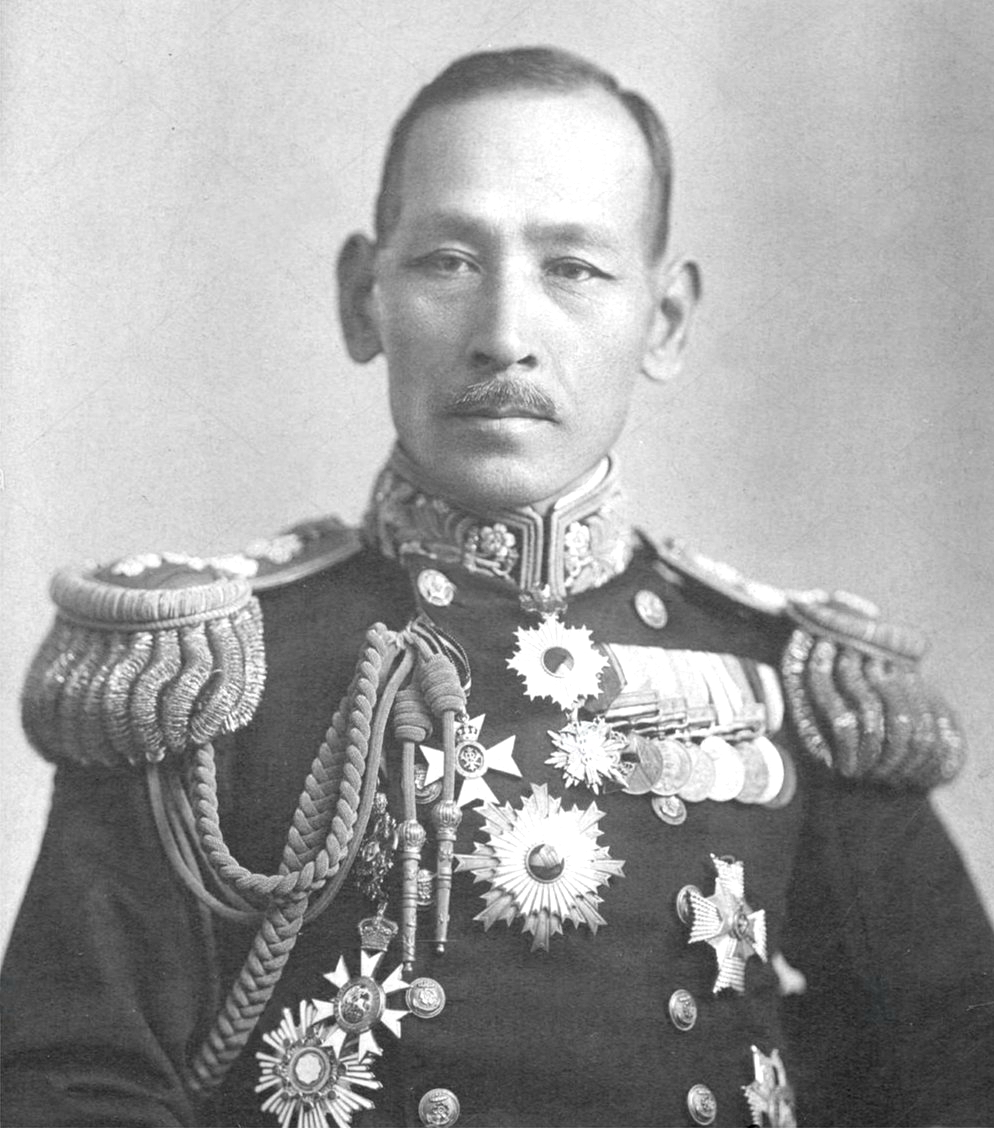
Yoyogi Park is a park in Yoyogikamizonocho, Shibuya, Tokyo, Japan, located adjacent to Harajuku Station and Meiji Shrine.
The contest to kill 100 people using a sword is a wartime account of a contest between two Japanese Army officers during the Japanese invasion of China over who could first kill 100 people with a sword. The two officers were later executed on war crimes charges for their involvement. Since that time, the historicity of the event has been hotly contested, often by Japanese nationalists or revisionist historians seeking to invalidate the historiography of the Nanking Massacre and by descendants of the two officers.

A Hachiman shrine is a Shinto shrine dedicated to kami Hachiman. It is the second most numerous type of Shinto shrine after those dedicated to Inari Ōkami.
Shōichi Watanabe was an English scholar and one of Japan’s foremost cultural critics. He was born in Tsuruoka, Yamagata Prefecture. A graduate of Sophia University, where he obtained his Master’s degree, he completed his doctorate at University of Münster in 1958. Two volumes of autobiography on his years in Germany narrate his varied experiences during this period. Returning to his alma mater, he became successively lecturer, assistant professor and full professor, until his retirement. He served as emeritus professor at the same university until his death. A passionate book-collector, he was chairman of the Japan Bibliophile Society. His personal collection of books on English philology was perhaps his most important contribution to the field of English philology in Japan, containing many rare items.
Usami Sadamitsu (宇佐美定満) also known as Usami Sadayuki (宇佐美定行) was a Japanese samurai of the Sengoku period, who served the Uesugi clan of Echigo Province.

Masao Sasakibara was an ace fighter pilot in the Imperial Japanese Navy during World War II. Participating in many of the Pacific War battles and campaigns as a member of several units, Sasakibara was officially credited with destroying 12 enemy aircraft. He was seriously injured while supporting the Ke operation during the Guadalcanal Campaign, but survived after a lengthy stay in the hospital. He returned to Japan in June 1945 and survived the war.

Yoshimi Minami was an ace fighter pilot in the Imperial Japanese Navy (IJN) during World War II. Participating in many of the Pacific War battles and campaigns as a member of several units, Minami was officially credited with destroying 15 enemy aircraft. He was killed in November 1944 attempting to crash his aircraft into enemy ships off Leyte as a participant in Kamikaze operations.

Tosa Province is a former province of Japan in the area that is today Kōchi Prefecture on Shikoku. Tosa was bordered by Iyo and Awa Provinces. It was sometimes called Doshū (土州).

Amina Sato, is a former member of the Japanese idol girl group AKB48, now a voice actress. In AKB48 she was originally a 4th generation trainee, then in Team A, in Team B, and finally in Team K. Amina Sato was also a member of a pop group named No Name, which consisted of several AKB48 members voice acting in the animation series AKB0048.
Qiao Zhenyu is a Chinese actor who is a graduate of the Beijing Dance Academy.

Tsuritama (つり球) "fishing ball", sometimes written as tsuritama, is a Japanese anime television series that aired between 13 April 2012 and 28 June 2012. The anime was licensed by Sentai Filmworks in North America, by MVM Films in the United Kingdom, and Hanabee in Australia and New Zealand.
Lǚ Lìpíng is a Chinese actress.
Tadanori Usami is a Japanese adult video (AV) director. He is credited with directing more than 450 videos in a career spanning over twenty years.
Hibi Kimei was Governor of Okinawa Prefecture (1908–1913).

Saburō Hyakutake was an Imperial Japanese Navy admiral.

Yoneda Torao was an Imperial Japanese Army veteran of the Boshin War. He was born in Kumamoto Prefecture. He was Grand Chamberlain of Japan (1878-1884). He was recipient of the Order of the Rising Sun and the Order of the Sacred Treasure.
Hakuji Nagayasu was a Japanese politician. He was born in Hyōgo Prefecture. He was governor of Kagawa Prefecture (1941-1942) and Nagano Prefecture (1942-1943).。
Usami is a Japanese surname. Notable people with the surname include:
Rika Usami, born February 20, 1986, is a Japanese karateka, born in Tokyo, best known for her victory at 2012 World Karate Championships.











